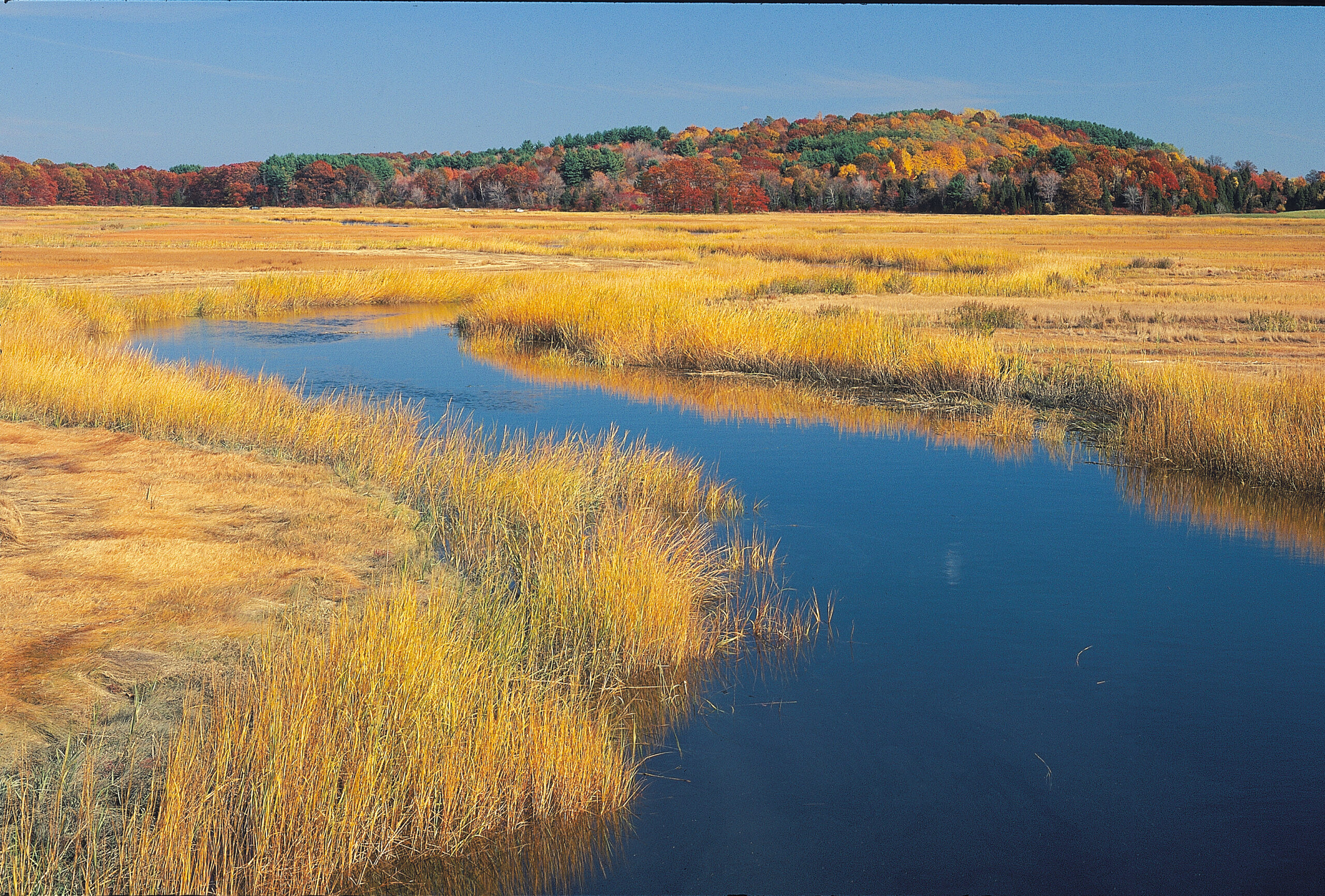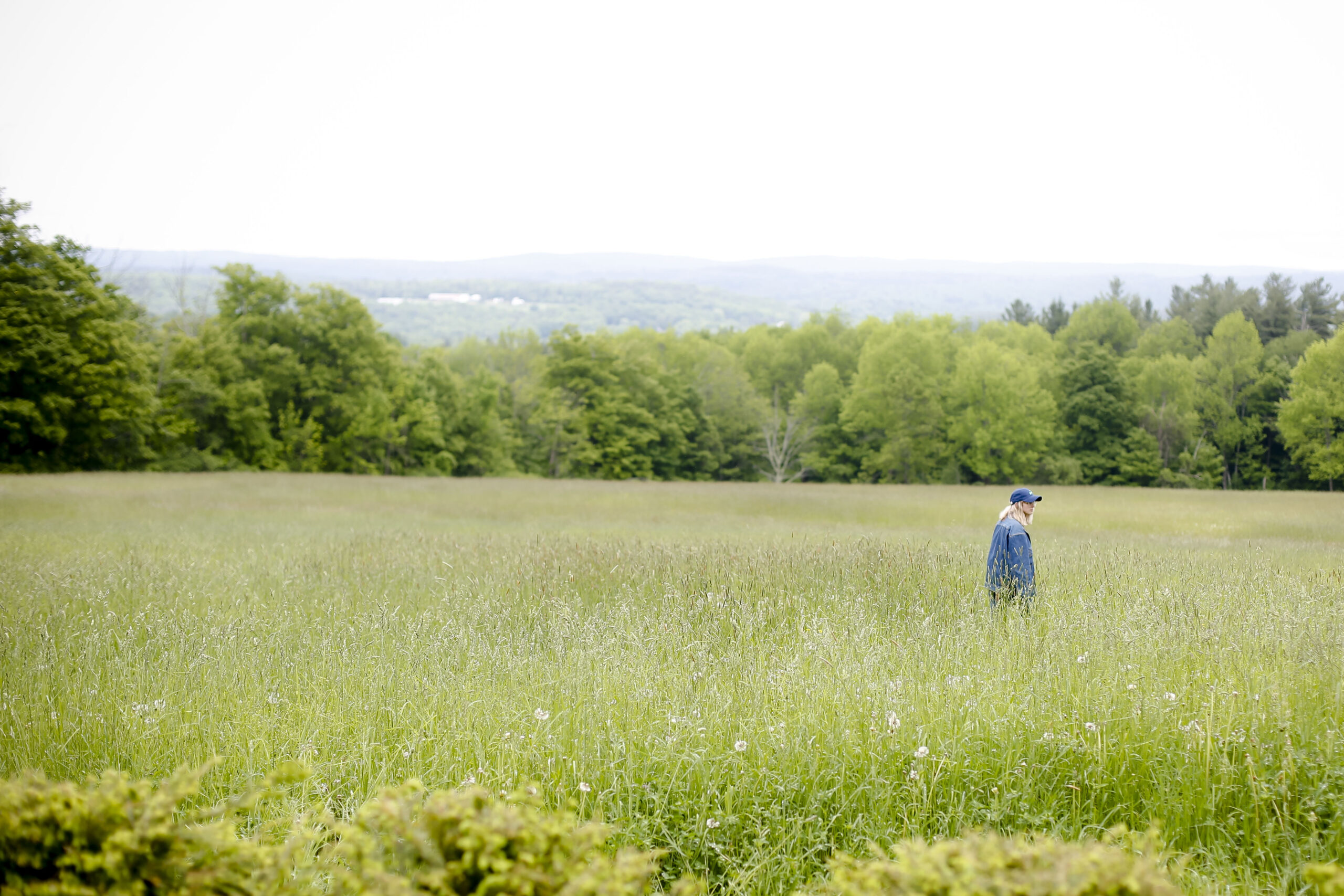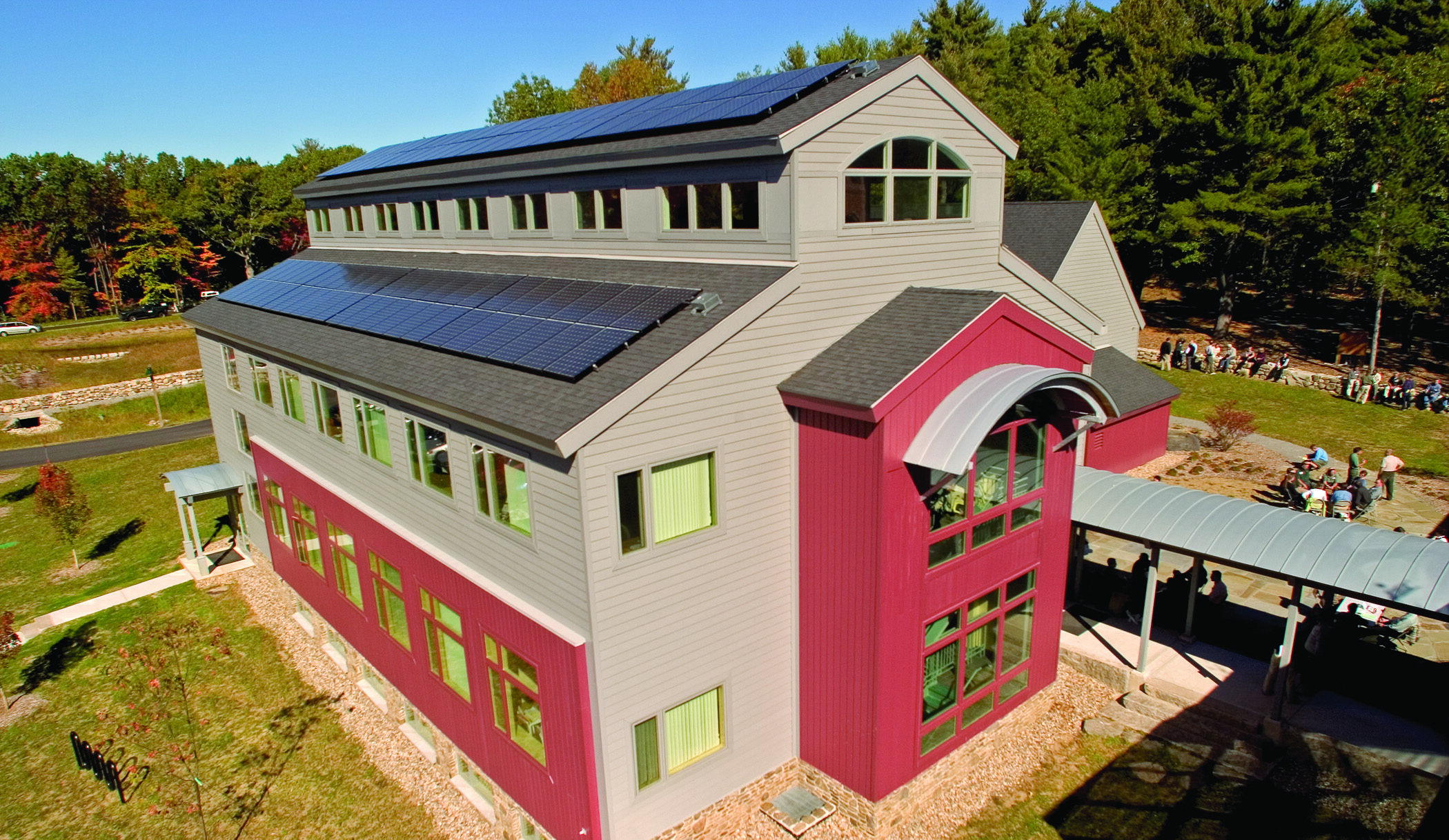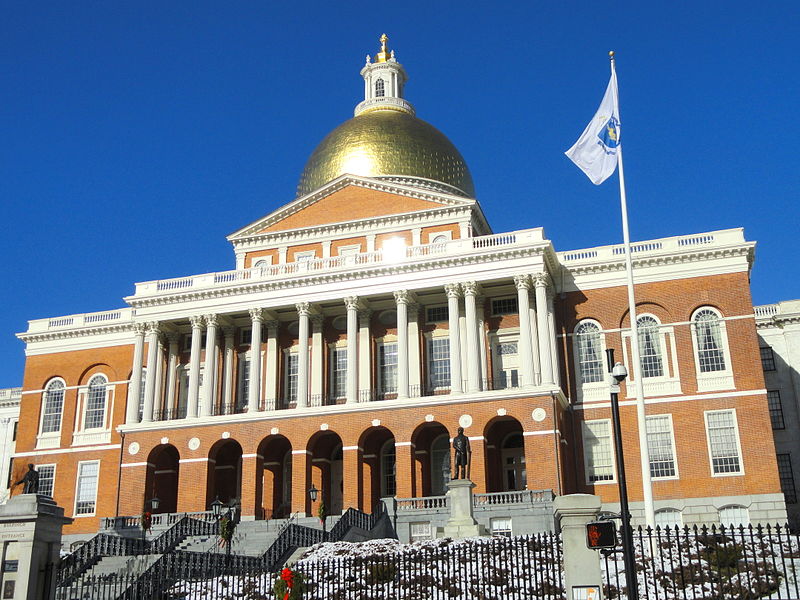The Trustees Policy Priorities 2023-2024
The Trustees collaborates with nonprofit partners, administrative officials, legislators and their staff to draft and negotiate passage of legislation and influence policies. We advocate at the local, state, and federal levels.
Our Goals
We advocate for public policies and steer public funding to further land acquisition, restoration, and management to protect natural resources, scenic landscapes, historic, cultural, and agricultural resources, and create and enhance opportunities for outdoor recreation. We focus on ways in which land and water can mitigate climate change through enhanced carbon sequestration and storage and use nature-based solutions to protect communities from climate impacts.
Our Strategy
The Trustees works organizes outreach to legislators, administrative officials, and other key stakeholders, and creates and leads comprehensive legislative, communications, and outreach campaigns.
During the 2023-2024 legislative session, our government relations team will develop, implement, and manage several statewide campaigns in support of the following priorities:
Environment and Climate Bond
The Commonwealth of Massachusetts issues bonds to pay for capital projects of statewide, regional, and local significance, through numerous grant programs. These programs support state agencies, cities, towns, and nonprofit grantees. Bond funds are stable and reliable and often leverage significant local, federal, and private funds.
The Trustees is leading a widespread coalition to redraft a new Environment and Climate Bond bill to ensure it contains funding for our collective priorities including capital investments land acquisition, wetland restoration, shade tree planting, and improved forest management; agricultural preservation restrictions, agroecology, community gardens and urban farms; river revitalization, fish and wildlife habitat restoration, dam and culvert redesign and replacement; water quality improvements; volunteer buyouts for properties at risk of flooding; and the creation of parks, trails, campgrounds, and other outdoor recreational opportunities. Equity and climate will be key focal points in the next Environment and Climate Bond bill.
Flood Risk Protection Commission
Climate change is causing significant increases in sea level, floods, and storms, and threatening residents, communities, first responders, working lands and nature. Becoming resilient to these worsening impacts depends on the Commonwealth’s ability to visualize and adapt to flood risk today and in the future. The state needs to create a statewide flood risk protection program to assist homeowners and tenants who are interested in selling their flood-prone property and/or need assistance with relocation; and to conserve and restore wetlands and floodplains to help neighborhoods become more resilient to climate impacts.
The Trustees applauds the Healey-Driscoll Administration for launching a comprehensive statewide study to identify properties at risk of flooding, establishing priorities, and recommending the components of a successful property buyout program. The Trustees has been supporting legislation that would create a new commission to bring together agency officials, legislative leaders, and expert stakeholders to study the feasibility of a voluntary acquisition program for properties that are subject to chronic flooding to eliminate the risk of catastrophic flood damage; and help owners and renters move out of harm’s way; while conserving land, creating parks, and restoring wetlands to provide climate resiliency functions. See legislation filed by Senator Marc Pacheco S.557 and Representative Sarah Peake H.876. While we still support these bills, we have shifted our focus to working with the administration to make sure the report includes recommendations to lawmakers regarding how to address this difficult and pressing issue, especially for Massachusetts’ most vulnerable residents.
Flood Risk Protection Commission Fact Sheet
Conservation Land Tax Credit
Sponsors: Senator Bruce Tarr and Senator James Eldridge (S.1940) and Representative Brad Jones and Representative Smitty Pignatelli (H.2839)
The state’s Clean Energy and Climate Plan calls for the protection of 40 percent of the state’s lands and waters to preserve and increase carbon sequestration and storage by 2050, which will require the permanent conservation of 25,000 acres per year. To meet this ambitious goal, state agencies, cities, towns, and nonprofits will need to increasingly engage private landowners who are interested in permanently conserving their land for climate mitigation, and other important benefits that land and waters provide.
The Trustees is partnering with The Nature Conservancy of Massachusetts and others to expand the conservation land tax credit. This existing refundable tax credit program encourages private landowners to donate land, including carbon-rich wetlands and forests, for permanent conservation purposes. Approved donations of gifts of land are eligible for a tax credit of 50 percent of the donated value, up to $75,000. This incentive has been used to conserve over 15,500 acres of privately owned land since 2011, leveraging a return on investment of $4.20 of land value for every $1 invested by the state. However, there is a wait list past 2026 to participate, causing a chilling effect on the program. This bill would address the backlog by increasing the program’s annual cap from $2 million to $5 million – incrementally over three years. This proposed expansion is long overdue.
Outdoor Recreation Act (new!)
Sponsors: Senator Paul Feeney S.488 and Representative Natalie Blais H.757
Outdoor recreation in Massachusetts is critical to support healthier communities, sustain local economies, protect our natural resources, and foster deep care and concern for our shared environment. Many communities in Massachusetts enjoy a wealth of year-round outdoor recreational opportunities that go together with our commitment to protecting and preserving natural resources and special places. However, Massachusetts’ outdoor recreation economy is barely growing when compared with other states; and there are stark disparities within Environmental Justice Populations which remain underserved by parks, trails, and open spaces.
Following the creation of the state’s new Office of Outdoor Recreation, The Trustees is partnering with the Charles River Watershed Association and other endorsing groups and industry officials to advocate for passage of legislation that would dedicate the existing sales tax on “sporting goods” to create grants for outdoor recreational projects, programs, and opportunities. This legislation could potentially create more than $50 million annually for land conservation; park, garden, and trail creation and improvements; and projects and programs to support outdoor recreational activities including boating, hiking, biking, fishing, camping, skiing, and other healthy and fun outdoor activities. Such projects and programs create jobs and support the outdoor recreation industry. The bill proposes that half of all funds generated would support those underserved by recreational opportunities, including Environmental Justice Populations.
Streamline Wetland Permitting (new!)
Sponsors: Senator Brendan Crighton (S.457) and Representative Dawne Shand (H.906)
Wetlands provide valuable services including water filtration and vital habitat for fish and wildlife including spawning grounds for imperiled species. Coastal wetlands, including salt marshes, protect communities from climate impacts such as erosion, flooding, and storm surge, by absorbing winds, waves, and stormwater. Wetlands mitigate climate impacts by absorbing carbon at rates far higher than terrestrial systems.
Massachusetts has lost about one-third of our wetlands, and more continue to be degraded due to development, pollution, sea level rise, and fragmentation by development including roads, culverts, and dams. In response, The Trustees is involved in several large-scale wetland restoration projects using innovative techniques. Unfortunately, like our partners, The Trustees has faced numerous regulatory hurdles hindering our ability implement this work at scale.
The Trustees is partnering with Mass Audubon and others in support of new legislation requiring the Healey-Driscoll Administration to improve interagency coordination to expedite wetland restoration efforts by creating consistent and predictable permitting processes for nature-based solutions, in addition to accelerating, streamlining, and aligning multiple state agency permit requirements before wetlands, and the valuable ecosystem services they provide, are lost forever. We are pleased to share that the administration recognizes the need for wetland permitting reform and is already proposing comprehensive, meaningful policy and regulatory reforms. The Trustees has participated in multiple meetings with agency officials and other stakeholders to influence this process.
State Operating Budget
State agencies steward nearly 500,000 acres of state parks, trails, beaches, campgrounds and fish and wildlife habitat; provide permits and grants for local communities and nonprofits; ensure our air, water and soils are healthy and clean; and implement the state’s stringent Net Zero by 2050 requirement under the Massachusetts Global Warming Solutions Act, which requires that Natural and Working Lands are utilized to meet the state’s ambitious goals.
Yet, the state’s annual operating budget for environmental programs accounts for a mere 0.64 percent of state spending.
As a core member of the Green Budget Coalition, which is led by the Environmental League of Massachusetts, The Trustees is urging the Healey-Driscoll Administration and legislative leaders to allocate at least one percent of the overall annual state budget toward environmental programs. This session we will focus on increases to the budgets of five specific agencies and programs including Executive Office of Energy and Environmental Affairs (EEA) Administration as well as EEA’s Environmental Justice program; Department of Conservation and Recreation State Parks; Natural Heritage and Endangered Species Program; and Department of Public Utilities Administration. The Trustees is also supporting collaborative efforts to secure budget increases for the Mass Cultural Council; Healthy Incentive Program; MassWildlife sportsman license reimbursement; and Community Preservation Act Trust Fund.
To explore a summary of Trustees public policy efforts in 2022, please click here.
Questions? Contact Trustees Senior Director of Government Relations Linda Orel at lorel@thetrustees.org




